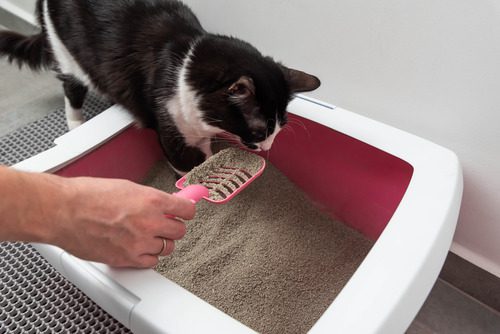My Cat Has Diarrhea – Should I Call the Emergency Vet?
When your cat is experiencing diarrhea, it’s normal to feel concerned. Diarrhea in cats can be caused by a variety of factors, including dietary indiscretion, infections, or more serious health issues. This condition is not only uncomfortable for your cat but can also lead to dehydration and other complications if not addressed properly. At The Village Vets – 24 Hour Emergency in Atlanta, GA, we see many cases of cat diarrhea and understand how distressing it can be for pet owners. This article aims to shed light on when it’s time to seek emergency care for your cat and how to recognize the signs that indicate a trip to the vet is necessary.

When to Seek Emergency Care
Recognizing the Signs
It’s essential to monitor your cat closely if they’re experiencing diarrhea. While an isolated incident may not warrant immediate concern, certain signs accompany diarrhea, indicating it’s time to call (404) 371-9774 for emergency care. These signs include:
- Persistent Diarrhea: Diarrhea that lasts more than 24 hours should be evaluated by a vet to prevent dehydration.
- Blood in Stool: This can indicate a more serious condition that requires immediate attention.
- Lethargy and Weakness: If your cat is less active or shows signs of weakness, it’s crucial to seek veterinary care.
- Vomiting: Vomiting in addition to diarrhea can quickly lead to dehydration.
- Loss of Appetite: A lack of interest in food over a day can signal an underlying issue that needs investigation.
- Changes in Behavior: Unusual behavior such as hiding or aggression can indicate that your cat is in distress.
Dehydration and Its Dangers
One of the primary concerns with cat diarrhea is the risk of dehydration. Dehydration can occur rapidly, especially in young kittens or older cats, and can have serious health implications. Symptoms of dehydration include:
- Dry gums
- Lethargy
- Increased heart rate
- Decreased skin elasticity
If you notice any of these signs, it’s important to contact The Village Vets immediately for advice and potential treatment.
Preventive Measures and How to Help Your Cat
Diet and Nutrition
While you should not attempt to treat cat diarrhea at home without veterinary advice, there are preventive measures you can take to help maintain your cat’s digestive health. Ensuring your cat has a balanced diet suited to their age, health status, and lifestyle can significantly reduce the risk of gastrointestinal upset. Avoid sudden changes in their diet and be cautious about giving them human food, which can disrupt their digestive system.
Stress Reduction
Stress can also play a role in causing diarrhea in cats. Creating a calm and stable environment for your cat can help prevent stress-related digestive issues. This includes providing a safe space for your cat, consistent routines, and regular interaction and playtime.
The Role of Regular Veterinary Care
Regular veterinary check-ups are vital in preventing and identifying the early signs of health issues that could lead to diarrhea or other gastrointestinal problems. These check-ups allow your vet to assess your cat’s overall health and make dietary or lifestyle recommendations tailored to your cat’s needs.
Parasite Control
Regular deworming and parasite control are essential components of your cat’s health care. Many cases of diarrhea are caused by parasites, which can be easily prevented with routine treatments recommended by your veterinarian.
How to Respond to Your Cat’s Digestive Distress
Cat diarrhea can be a sign of various health issues, some of which require immediate veterinary attention. Recognizing the signs that indicate a need for emergency care, such as persistent diarrhea, blood in the stool, or signs of dehydration, can be crucial for your cat’s health. At The Village Vets – 24 Hour Emergency in Atlanta, GA, we’re here to provide the care and support your cat needs, day or night. If you’re concerned about your cat’s health, call us at (404) 371-9774. Remember, it’s always better to be safe and have your cat evaluated by a professional if you have any concerns about their health or behavior.

